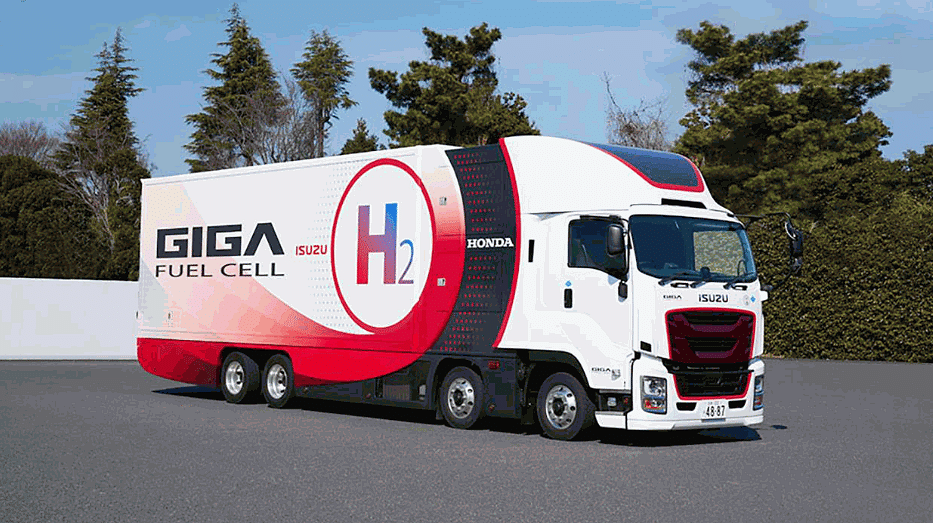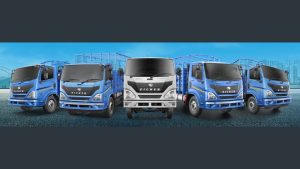
Isuzu Motors and Honda Motor Co have started testing a fuel cell (FC)-powered heavy-duty truck on public roads in Japan of the Giga Fuel Cell.
The testing is scheduled to run through September 2024, amassing knowledge and identifying technical issues in preparation for a 2027 market introduction. The prototype model being used for this demonstration testing is the same type as the one exhibited at the Isuzu Group booth at the Japan Mobility Show 2023.
The two automakers’ logistics arms – Isuzu Logistics Co and Honda Logistics – are carrying out the demonstration testing of the Giga Fuel Cell on public roads in Japan. This is to verify the potential of the utilization of hydrogen fuel and the practicality of heavy-duty fuel cell trucks. The testing is done for cargo handling and public road driving, vehicle operation management including hydrogen refueling and market compatibility of heavy-duty trucks.
Isuzu and Honda believe that FC technology, utilising hydrogen as a fuel resulting in no CO2 emissions, will be effective to achieve carbon neutrality of heavy-duty trucks which are required to achieve high-efficiency transportation (with the capability for long-distance driving, large load capacity, quick refuelling).
Also Read: EKA Mobility, Mitsui, & VDL Groep Forge Strategic Partnership In India
Since the signing of an agreement in January 2020 to conduct joint research on FC-powered heavy-duty trucks, the two companies have been working on the verification of the compatibility of the FC system and heavy-duty trucks and the establishment of a foundation for basic technologies such as vehicle control technologies. The two companies are planning to introduce the production model to market in 2027 by fully leveraging the technology, experience and knowledge gained through the joint research.

Advantages of fuel cell technology in the transportation industry
Fuel cell technology has the potential to revolutionize the transportation industry, and Isuzu and Honda are at the forefront of this innovative movement with their fuel cell-powered heavy-duty trucks. There are several advantages to adopting this technology in the transportation sector.
First and foremost, fuel cell technology offers a more sustainable and environmentally friendly alternative to traditional combustion engines. These fuel cell-powered trucks produce zero emissions, meaning they do not contribute to air pollution or greenhouse gas emissions. With increasing concerns about climate change and the need to reduce our carbon footprint, fuel cell technology provides a promising solution for the transportation industry to move towards a greener future.
In addition to being environmentally friendly, fuel cell-powered trucks also offer improved energy efficiency. Unlike combustion engines that rely on burning fuel to generate power, fuel cells use a chemical process to produce electricity. This process is highly efficient, resulting in a more effective utilization of energy and ultimately reducing fuel consumption. By maximizing energy efficiency, fuel cell technology can lead to significant cost savings for transportation companies in the long run.
In conclusion, the partnership between Isuzu and Honda in pioneering fuel cell-powered heavy-duty trucks marks a significant step forward in the future of transportation. With the potential to revolutionize the industry and promote sustainability on a global scale, these vehicles have the power to drive us towards a greener, cleaner, and more sustainable future.







